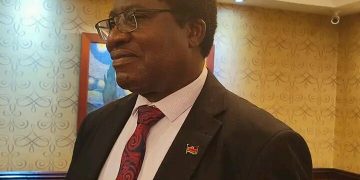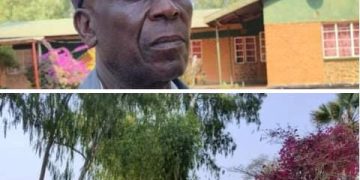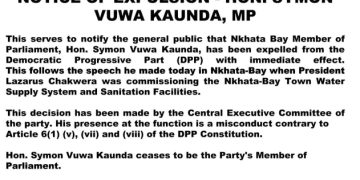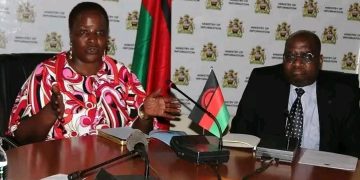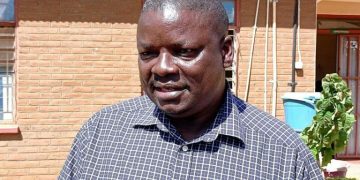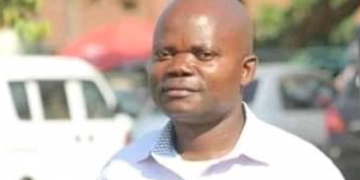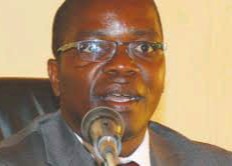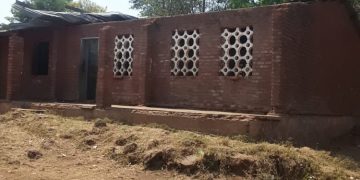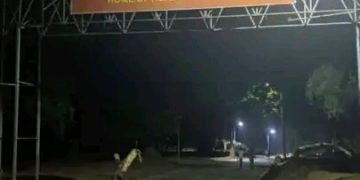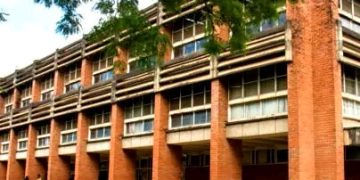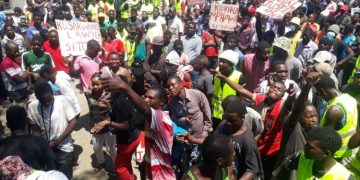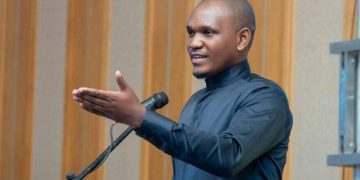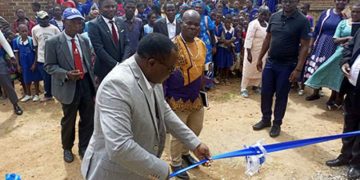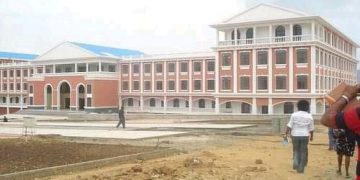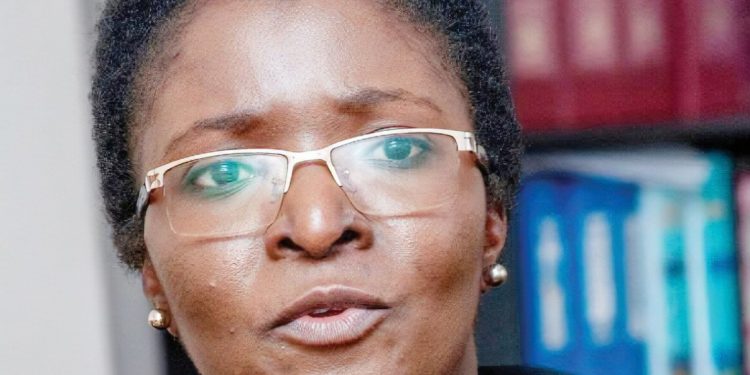Director General of the Anti-Corruption Bureau (ACB) Martha Chizuma and her team Wednesday appeared before the Legal Affairs Committee of Parliament where, among other issues, she defended her body’s recent request for consent to prosecute Zuneth Sattar’s agent, Ashok Nair.
Last month, ACB made the request to Director of Public Prosecutions (DPP) Steve Kayuni for the bureau to start prosecuting Ashok over corrupt land-related deals he is suspected to have facilitated on behalf of Sattar.
However, Kayuni denied the ACB the consent, arguing that it had only provided an interim investigation report which he deemed insufficient to justify the granting of the consent.
The development prompted the Legal Affairs Committee of Parliament to summon Kayuni two weeks ago to explain his side of the story.
Wednesday, it was Chizuma’s turn.
In an interview after the meeting, which was held in camera, Chizuma said they believed they had explained the truth of the matter to the committee.
She said what they submitted to the DPP in their request for consent was not different from all other requests the ACB has made to the DPP for which he has granted consent before.
“We had no basis to think that the DPP would handle this request differently. We believe we managed to demonstrate this to the committee,” she said.
Asked for his comment after the meeting, the parliamentary committee’s chairperson Peter Dimba refused to divulge information on the resolutions of the committee.
“We, as a committee, will issue a statement Thursday [today] afternoon on our determination on the matter,” he said.
However, a member of the committee said, from what they heard, they were considering pushing for an urgent review of the legal framework in order to make the ACB more independent.
According to present laws, the office of the ACB cannot prosecute without getting consent from the office of the DPP.
In the letter to ACB, Kayuni asked for a full investigation report other than an interim one.
He argued that it was not possible for his office to make an informed decision based on an interim report.
Kayuni said the office needed other relevant documents such as investigation report, legal opinion, proposed changes and consent letter for it to make an independent analysis of the evidence and the law.
“We would be failing in duty bestowed on us by law if we turn the granting of consent as an academic exercise or merely endorsement of what the ACB had duly submitted,” the letter reads.
Ashok is suspected to have been facilitating corrupt deals here in Malawi on behalf of Sattar, who was arrested last year in the United Kingdom by the National Crimes Agency.
Director General of the Anti-Corruption Bureau (ACB) Martha Chizuma and her team Wednesday appeared before the Legal Affairs Committee of Parliament where, among other issues, she defended her body’s recent request for consent to prosecute Zuneth Sattar’s agent, Ashok Nair.
Last month, ACB made the request to Director of Public Prosecutions (DPP) Steve Kayuni for the bureau to start prosecuting Ashok over corrupt land-related deals he is suspected to have facilitated on behalf of Sattar.
However, Kayuni denied the ACB the consent, arguing that it had only provided an interim investigation report which he deemed insufficient to justify the granting of the consent.
The development prompted the Legal Affairs Committee of Parliament to summon Kayuni two weeks ago to explain his side of the story.
Wednesday, it was Chizuma’s turn.
In an interview after the meeting, which was held in camera, Chizuma said they believed they had explained the truth of the matter to the committee.
She said what they submitted to the DPP in their request for consent was not different from all other requests the ACB has made to the DPP for which he has granted consent before.
“We had no basis to think that the DPP would handle this request differently. We believe we managed to demonstrate this to the committee,” she said.
Asked for his comment after the meeting, the parliamentary committee’s chairperson Peter Dimba refused to divulge information on the resolutions of the committee.
“We, as a committee, will issue a statement Thursday [today] afternoon on our determination on the matter,” he said.
However, a member of the committee said, from what they heard, they were considering pushing for an urgent review of the legal framework in order to make the ACB more independent.
According to present laws, the office of the ACB cannot prosecute without getting consent from the office of the DPP.
In the letter to ACB, Kayuni asked for a full investigation report other than an interim one.
He argued that it was not possible for his office to make an informed decision based on an interim report.
Kayuni said the office needed other relevant documents such as investigation report, legal opinion, proposed changes and consent letter for it to make an independent analysis of the evidence and the law.
“We would be failing in duty bestowed on us by law if we turn the granting of consent as an academic exercise or merely endorsement of what the ACB had duly submitted,” the letter reads.
Ashok is suspected to have been facilitating corrupt deals here in Malawi on behalf of Sattar, who was arrested last year in the United Kingdom by the National Crimes Agency.
Director General of the Anti-Corruption Bureau (ACB) Martha Chizuma and her team Wednesday appeared before the Legal Affairs Committee of Parliament where, among other issues, she defended her body’s recent request for consent to prosecute Zuneth Sattar’s agent, Ashok Nair.
Last month, ACB made the request to Director of Public Prosecutions (DPP) Steve Kayuni for the bureau to start prosecuting Ashok over corrupt land-related deals he is suspected to have facilitated on behalf of Sattar.
However, Kayuni denied the ACB the consent, arguing that it had only provided an interim investigation report which he deemed insufficient to justify the granting of the consent.
The development prompted the Legal Affairs Committee of Parliament to summon Kayuni two weeks ago to explain his side of the story.
Wednesday, it was Chizuma’s turn.
In an interview after the meeting, which was held in camera, Chizuma said they believed they had explained the truth of the matter to the committee.
She said what they submitted to the DPP in their request for consent was not different from all other requests the ACB has made to the DPP for which he has granted consent before.
“We had no basis to think that the DPP would handle this request differently. We believe we managed to demonstrate this to the committee,” she said.
Asked for his comment after the meeting, the parliamentary committee’s chairperson Peter Dimba refused to divulge information on the resolutions of the committee.
“We, as a committee, will issue a statement Thursday [today] afternoon on our determination on the matter,” he said.
However, a member of the committee said, from what they heard, they were considering pushing for an urgent review of the legal framework in order to make the ACB more independent.
According to present laws, the office of the ACB cannot prosecute without getting consent from the office of the DPP.
In the letter to ACB, Kayuni asked for a full investigation report other than an interim one.
He argued that it was not possible for his office to make an informed decision based on an interim report.
Kayuni said the office needed other relevant documents such as investigation report, legal opinion, proposed changes and consent letter for it to make an independent analysis of the evidence and the law.
“We would be failing in duty bestowed on us by law if we turn the granting of consent as an academic exercise or merely endorsement of what the ACB had duly submitted,” the letter reads.
Ashok is suspected to have been facilitating corrupt deals here in Malawi on behalf of Sattar, who was arrested last year in the United Kingdom by the National Crimes Agency.
Director General of the Anti-Corruption Bureau (ACB) Martha Chizuma and her team Wednesday appeared before the Legal Affairs Committee of Parliament where, among other issues, she defended her body’s recent request for consent to prosecute Zuneth Sattar’s agent, Ashok Nair.
Last month, ACB made the request to Director of Public Prosecutions (DPP) Steve Kayuni for the bureau to start prosecuting Ashok over corrupt land-related deals he is suspected to have facilitated on behalf of Sattar.
However, Kayuni denied the ACB the consent, arguing that it had only provided an interim investigation report which he deemed insufficient to justify the granting of the consent.
The development prompted the Legal Affairs Committee of Parliament to summon Kayuni two weeks ago to explain his side of the story.
Wednesday, it was Chizuma’s turn.
In an interview after the meeting, which was held in camera, Chizuma said they believed they had explained the truth of the matter to the committee.
She said what they submitted to the DPP in their request for consent was not different from all other requests the ACB has made to the DPP for which he has granted consent before.
“We had no basis to think that the DPP would handle this request differently. We believe we managed to demonstrate this to the committee,” she said.
Asked for his comment after the meeting, the parliamentary committee’s chairperson Peter Dimba refused to divulge information on the resolutions of the committee.
“We, as a committee, will issue a statement Thursday [today] afternoon on our determination on the matter,” he said.
However, a member of the committee said, from what they heard, they were considering pushing for an urgent review of the legal framework in order to make the ACB more independent.
According to present laws, the office of the ACB cannot prosecute without getting consent from the office of the DPP.
In the letter to ACB, Kayuni asked for a full investigation report other than an interim one.
He argued that it was not possible for his office to make an informed decision based on an interim report.
Kayuni said the office needed other relevant documents such as investigation report, legal opinion, proposed changes and consent letter for it to make an independent analysis of the evidence and the law.
“We would be failing in duty bestowed on us by law if we turn the granting of consent as an academic exercise or merely endorsement of what the ACB had duly submitted,” the letter reads.
Ashok is suspected to have been facilitating corrupt deals here in Malawi on behalf of Sattar, who was arrested last year in the United Kingdom by the National Crimes Agency.
Director General of the Anti-Corruption Bureau (ACB) Martha Chizuma and her team Wednesday appeared before the Legal Affairs Committee of Parliament where, among other issues, she defended her body’s recent request for consent to prosecute Zuneth Sattar’s agent, Ashok Nair.
Last month, ACB made the request to Director of Public Prosecutions (DPP) Steve Kayuni for the bureau to start prosecuting Ashok over corrupt land-related deals he is suspected to have facilitated on behalf of Sattar.
However, Kayuni denied the ACB the consent, arguing that it had only provided an interim investigation report which he deemed insufficient to justify the granting of the consent.
The development prompted the Legal Affairs Committee of Parliament to summon Kayuni two weeks ago to explain his side of the story.
Wednesday, it was Chizuma’s turn.
In an interview after the meeting, which was held in camera, Chizuma said they believed they had explained the truth of the matter to the committee.
She said what they submitted to the DPP in their request for consent was not different from all other requests the ACB has made to the DPP for which he has granted consent before.
“We had no basis to think that the DPP would handle this request differently. We believe we managed to demonstrate this to the committee,” she said.
Asked for his comment after the meeting, the parliamentary committee’s chairperson Peter Dimba refused to divulge information on the resolutions of the committee.
“We, as a committee, will issue a statement Thursday [today] afternoon on our determination on the matter,” he said.
However, a member of the committee said, from what they heard, they were considering pushing for an urgent review of the legal framework in order to make the ACB more independent.
According to present laws, the office of the ACB cannot prosecute without getting consent from the office of the DPP.
In the letter to ACB, Kayuni asked for a full investigation report other than an interim one.
He argued that it was not possible for his office to make an informed decision based on an interim report.
Kayuni said the office needed other relevant documents such as investigation report, legal opinion, proposed changes and consent letter for it to make an independent analysis of the evidence and the law.
“We would be failing in duty bestowed on us by law if we turn the granting of consent as an academic exercise or merely endorsement of what the ACB had duly submitted,” the letter reads.
Ashok is suspected to have been facilitating corrupt deals here in Malawi on behalf of Sattar, who was arrested last year in the United Kingdom by the National Crimes Agency.
Director General of the Anti-Corruption Bureau (ACB) Martha Chizuma and her team Wednesday appeared before the Legal Affairs Committee of Parliament where, among other issues, she defended her body’s recent request for consent to prosecute Zuneth Sattar’s agent, Ashok Nair.
Last month, ACB made the request to Director of Public Prosecutions (DPP) Steve Kayuni for the bureau to start prosecuting Ashok over corrupt land-related deals he is suspected to have facilitated on behalf of Sattar.
However, Kayuni denied the ACB the consent, arguing that it had only provided an interim investigation report which he deemed insufficient to justify the granting of the consent.
The development prompted the Legal Affairs Committee of Parliament to summon Kayuni two weeks ago to explain his side of the story.
Wednesday, it was Chizuma’s turn.
In an interview after the meeting, which was held in camera, Chizuma said they believed they had explained the truth of the matter to the committee.
She said what they submitted to the DPP in their request for consent was not different from all other requests the ACB has made to the DPP for which he has granted consent before.
“We had no basis to think that the DPP would handle this request differently. We believe we managed to demonstrate this to the committee,” she said.
Asked for his comment after the meeting, the parliamentary committee’s chairperson Peter Dimba refused to divulge information on the resolutions of the committee.
“We, as a committee, will issue a statement Thursday [today] afternoon on our determination on the matter,” he said.
However, a member of the committee said, from what they heard, they were considering pushing for an urgent review of the legal framework in order to make the ACB more independent.
According to present laws, the office of the ACB cannot prosecute without getting consent from the office of the DPP.
In the letter to ACB, Kayuni asked for a full investigation report other than an interim one.
He argued that it was not possible for his office to make an informed decision based on an interim report.
Kayuni said the office needed other relevant documents such as investigation report, legal opinion, proposed changes and consent letter for it to make an independent analysis of the evidence and the law.
“We would be failing in duty bestowed on us by law if we turn the granting of consent as an academic exercise or merely endorsement of what the ACB had duly submitted,” the letter reads.
Ashok is suspected to have been facilitating corrupt deals here in Malawi on behalf of Sattar, who was arrested last year in the United Kingdom by the National Crimes Agency.
Director General of the Anti-Corruption Bureau (ACB) Martha Chizuma and her team Wednesday appeared before the Legal Affairs Committee of Parliament where, among other issues, she defended her body’s recent request for consent to prosecute Zuneth Sattar’s agent, Ashok Nair.
Last month, ACB made the request to Director of Public Prosecutions (DPP) Steve Kayuni for the bureau to start prosecuting Ashok over corrupt land-related deals he is suspected to have facilitated on behalf of Sattar.
However, Kayuni denied the ACB the consent, arguing that it had only provided an interim investigation report which he deemed insufficient to justify the granting of the consent.
The development prompted the Legal Affairs Committee of Parliament to summon Kayuni two weeks ago to explain his side of the story.
Wednesday, it was Chizuma’s turn.
In an interview after the meeting, which was held in camera, Chizuma said they believed they had explained the truth of the matter to the committee.
She said what they submitted to the DPP in their request for consent was not different from all other requests the ACB has made to the DPP for which he has granted consent before.
“We had no basis to think that the DPP would handle this request differently. We believe we managed to demonstrate this to the committee,” she said.
Asked for his comment after the meeting, the parliamentary committee’s chairperson Peter Dimba refused to divulge information on the resolutions of the committee.
“We, as a committee, will issue a statement Thursday [today] afternoon on our determination on the matter,” he said.
However, a member of the committee said, from what they heard, they were considering pushing for an urgent review of the legal framework in order to make the ACB more independent.
According to present laws, the office of the ACB cannot prosecute without getting consent from the office of the DPP.
In the letter to ACB, Kayuni asked for a full investigation report other than an interim one.
He argued that it was not possible for his office to make an informed decision based on an interim report.
Kayuni said the office needed other relevant documents such as investigation report, legal opinion, proposed changes and consent letter for it to make an independent analysis of the evidence and the law.
“We would be failing in duty bestowed on us by law if we turn the granting of consent as an academic exercise or merely endorsement of what the ACB had duly submitted,” the letter reads.
Ashok is suspected to have been facilitating corrupt deals here in Malawi on behalf of Sattar, who was arrested last year in the United Kingdom by the National Crimes Agency.
Director General of the Anti-Corruption Bureau (ACB) Martha Chizuma and her team Wednesday appeared before the Legal Affairs Committee of Parliament where, among other issues, she defended her body’s recent request for consent to prosecute Zuneth Sattar’s agent, Ashok Nair.
Last month, ACB made the request to Director of Public Prosecutions (DPP) Steve Kayuni for the bureau to start prosecuting Ashok over corrupt land-related deals he is suspected to have facilitated on behalf of Sattar.
However, Kayuni denied the ACB the consent, arguing that it had only provided an interim investigation report which he deemed insufficient to justify the granting of the consent.
The development prompted the Legal Affairs Committee of Parliament to summon Kayuni two weeks ago to explain his side of the story.
Wednesday, it was Chizuma’s turn.
In an interview after the meeting, which was held in camera, Chizuma said they believed they had explained the truth of the matter to the committee.
She said what they submitted to the DPP in their request for consent was not different from all other requests the ACB has made to the DPP for which he has granted consent before.
“We had no basis to think that the DPP would handle this request differently. We believe we managed to demonstrate this to the committee,” she said.
Asked for his comment after the meeting, the parliamentary committee’s chairperson Peter Dimba refused to divulge information on the resolutions of the committee.
“We, as a committee, will issue a statement Thursday [today] afternoon on our determination on the matter,” he said.
However, a member of the committee said, from what they heard, they were considering pushing for an urgent review of the legal framework in order to make the ACB more independent.
According to present laws, the office of the ACB cannot prosecute without getting consent from the office of the DPP.
In the letter to ACB, Kayuni asked for a full investigation report other than an interim one.
He argued that it was not possible for his office to make an informed decision based on an interim report.
Kayuni said the office needed other relevant documents such as investigation report, legal opinion, proposed changes and consent letter for it to make an independent analysis of the evidence and the law.
“We would be failing in duty bestowed on us by law if we turn the granting of consent as an academic exercise or merely endorsement of what the ACB had duly submitted,” the letter reads.
Ashok is suspected to have been facilitating corrupt deals here in Malawi on behalf of Sattar, who was arrested last year in the United Kingdom by the National Crimes Agency.


